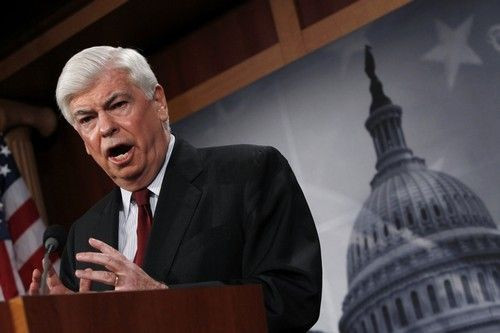SOPA Is 'Dead,' Film Industry Lobbyist Chris Dodd Says

SOPA -- the controversial online piracy bill tech giants said would break the Internet - is dead, Hollywood's chief lobbyist Chris Dodd said.
Dodd, the head of the Motion Picture Association of America, said the industry-supported Stop Online Piracy Act is history, in an interview with Bloomberg Television that will air this weekend.
That's over with. It's gone, in my view. It's dead. It's behind us, said Dodd, a former five-term Democratic U.S. senator from Connecticut.
The stark comments, from the man who pushed for tougher anti-piracy laws, come after a concerted effort from the technology community to block SOPA from passing the U.S. Congress last year. Google (Nasdaq: GOOG), Wikipedia and Reddit all went dark in protest; web domain registration provider GoDaddy.com was subject to a boycott because of its support for the bill.
Opposition to the bipartisan SOPA began to grow late in the U.S. House of Representatives, resulting in the measure getting shelved in January.
SOPA would have empowered the U.S. Department of Justice to go after rogue foreign websites dedicated to piracy and copyright infringement that are outside the agency's jurisdiction. The Justice Department and copyright holders would have been able to get a court to block people in the U.S. from accessing foreign websites that host infringing content, like so-called torrents of movies, music and software.
The tech community said the bill was too broad and would have unfairly ensnared websites that host user-generated content that often contains infringing material. Further, opponents bristled at provisions to deputize payment networks like eBay's PayPal and Internet service providers to root out copyright violations.
While SOPA may be dead, Dodd said efforts to get Congress to crack down on intellectual property theft will continue. The push will likely come after the 2012 elections, Dodd said.
The issue hasn't gone away, Dodd said. In fact, even those from the technology community, the overwhelming majority believe we must do something about intellectual property.
© Copyright IBTimes 2024. All rights reserved.





















